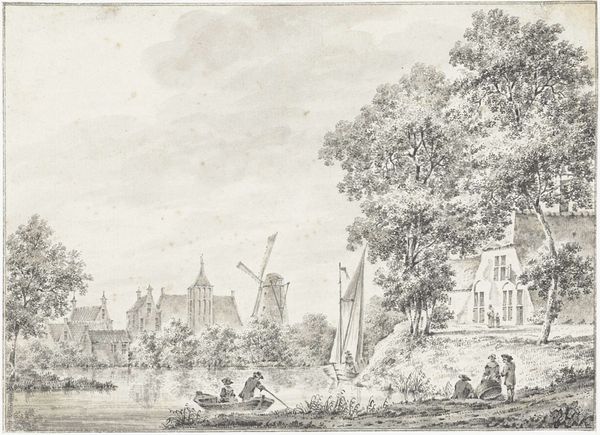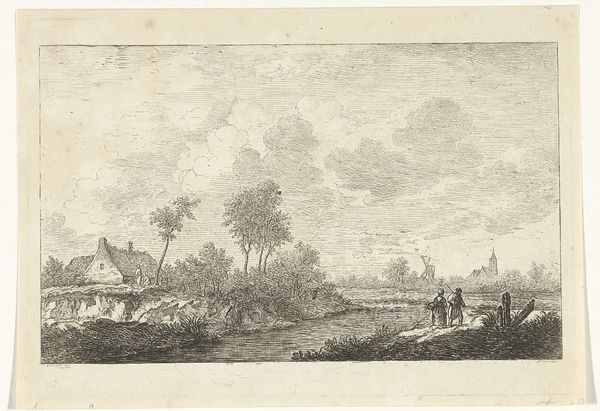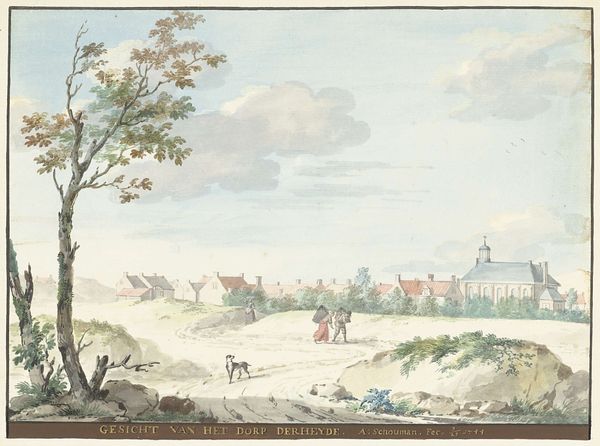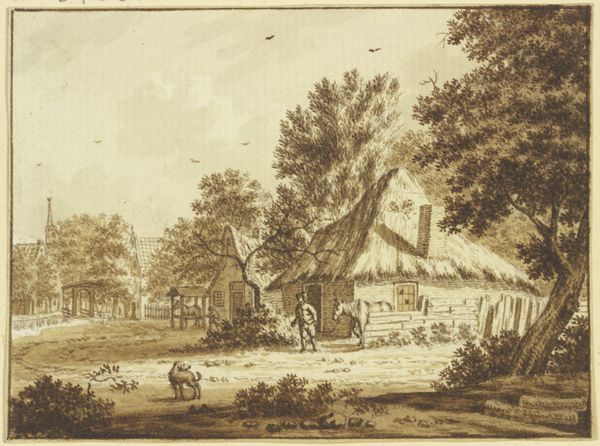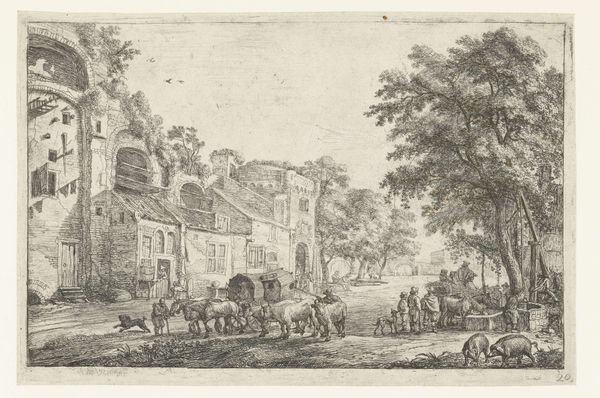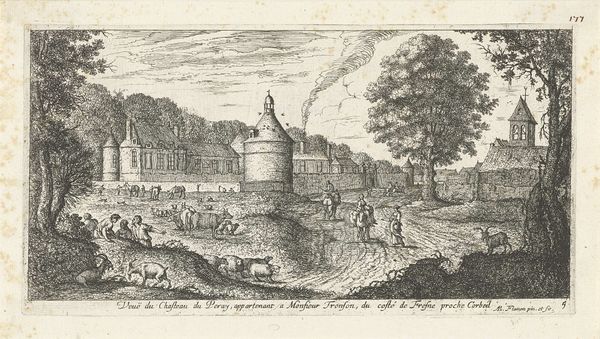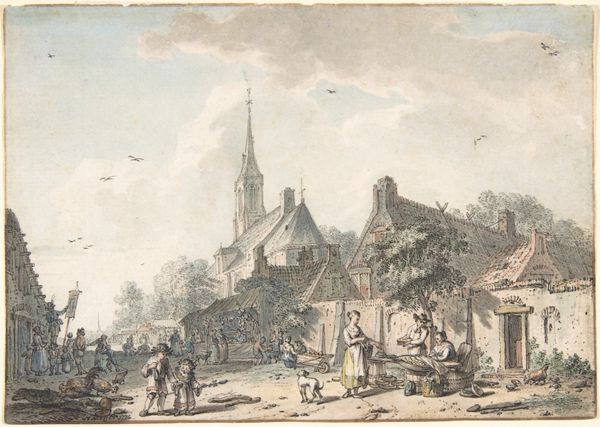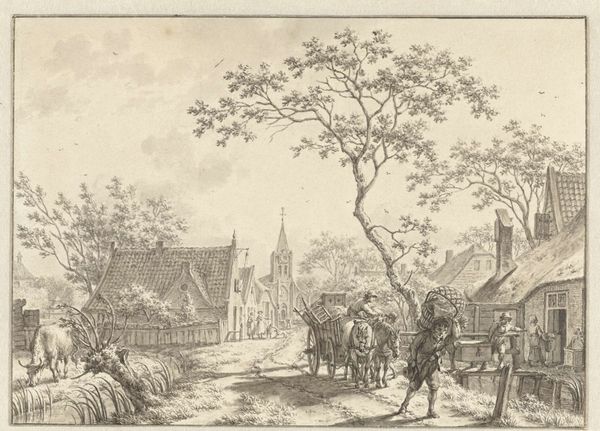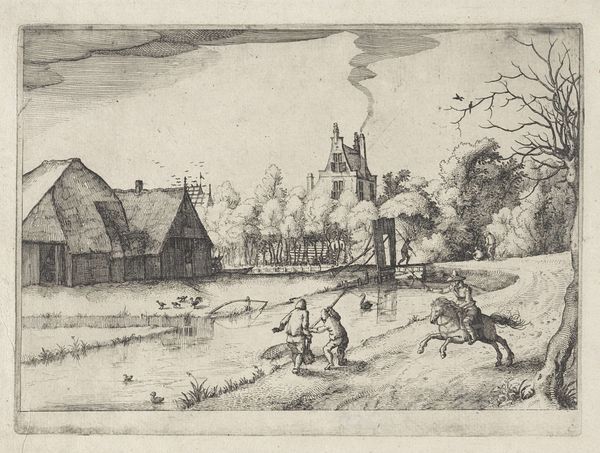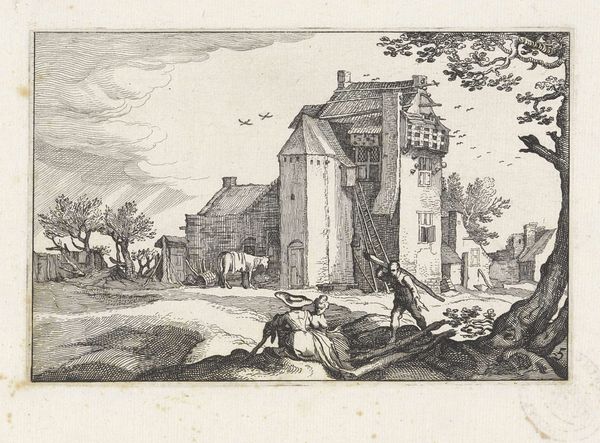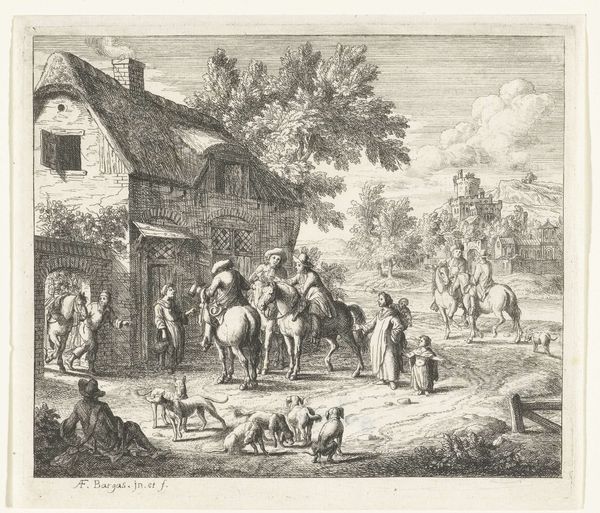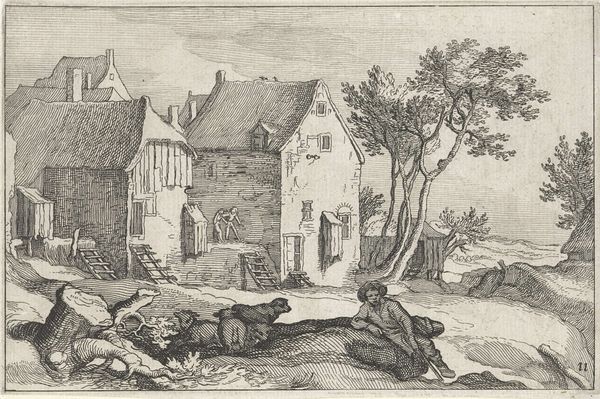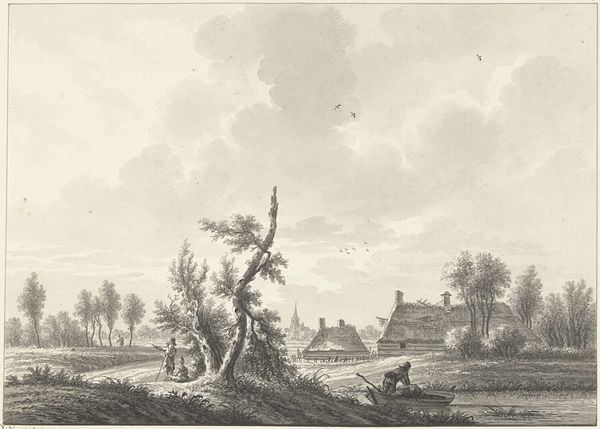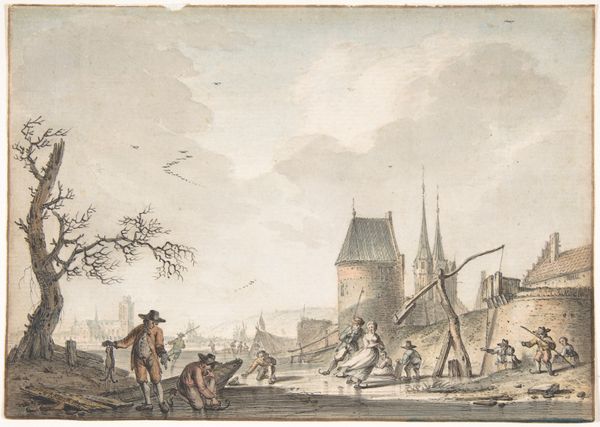
drawing, paper, ink
#
drawing
#
baroque
#
landscape
#
paper
#
ink
#
genre-painting
#
realism
Dimensions: height 195 mm, width 257 mm
Copyright: Rijks Museum: Open Domain
Curator: It's melancholic, wouldn't you say? Like a faded photograph of a day that's never quite brightened. Editor: Mattheus Verheyden's "View of The Hague," crafted around 1740, invites a contemplation of landscape not merely as scenery but as a layered narrative. We see it rendered in ink on paper. Curator: The distant steeple... It makes me think of small-town gossip travelling on the wind. The muted tones make it look dreamy. Almost like memory. And that goat! Looks ready for a fight! Editor: And who has access to these memories, and whose stories are told through the romanticised pastoral? There is, I think, an erasure of class tensions. These images frequently omit labor. This image shows the leisure of some built upon the labor of others. We see no evidence of who has created and maintains the bounty in the image. Curator: Oh, it's absolutely playing with that trope. But there is a lovely playfulness, you know? It doesn’t try to sell a perfect story; the realism keeps that at bay. I can almost feel the breeze. The light is divine, especially for simple ink. I can't help but feel some personal connection. It whispers, doesn't shout. Editor: This whisper resonates differently across societal lines. Consider the Dutch Golden Age. Land ownership and artistic patronage were intimately connected. Such vistas represented more than aesthetic pleasure, acting as symbols of power and economic control. Even now, the choice to display such imagery… these choices have consequences, informing perceptions of place, belonging, and historical narratives. Curator: So true. Art's never *just* art, is it? It's always part of the bigger story, whether we mean it to be or not. Thank goodness the goats are in there too, making mischief. Editor: The animal presence introduces an interesting dialogue. They aren't simply part of the landscape; their depiction contributes to the overall dynamic between cultivated space and natural impulse. It raises the question of who is being excluded even from this scene that presents itself as common, shared, and innocuous? Curator: You always manage to turn my pastoral dreams into a philosophical debate, which is why our talks are so fun! Thanks for shifting my view again. Editor: Always a pleasure to see a work from a new angle, understanding the conversations it stimulates.
Comments
No comments
Be the first to comment and join the conversation on the ultimate creative platform.
